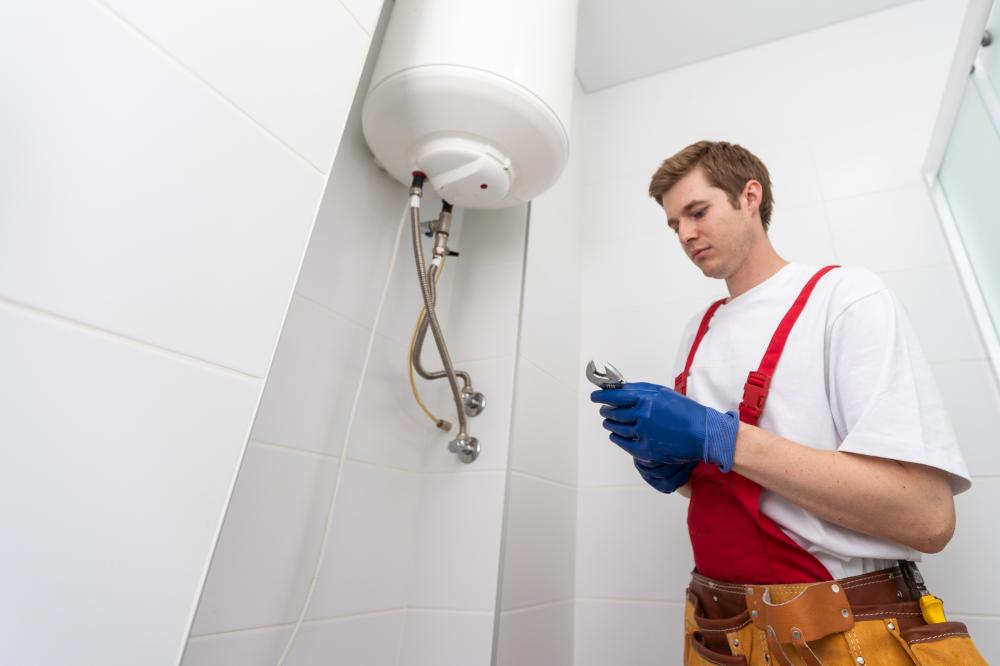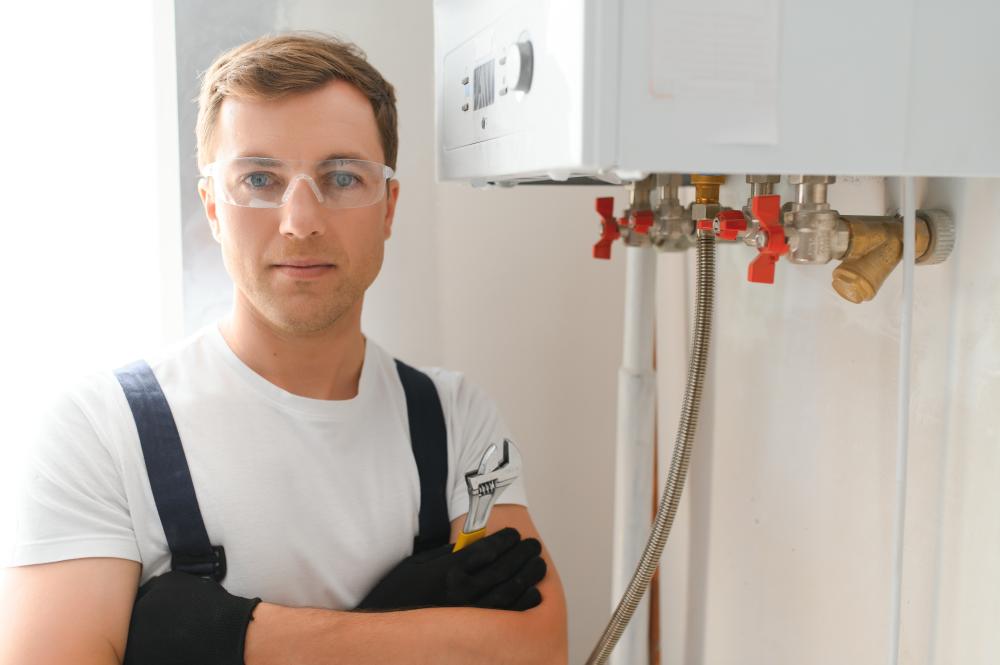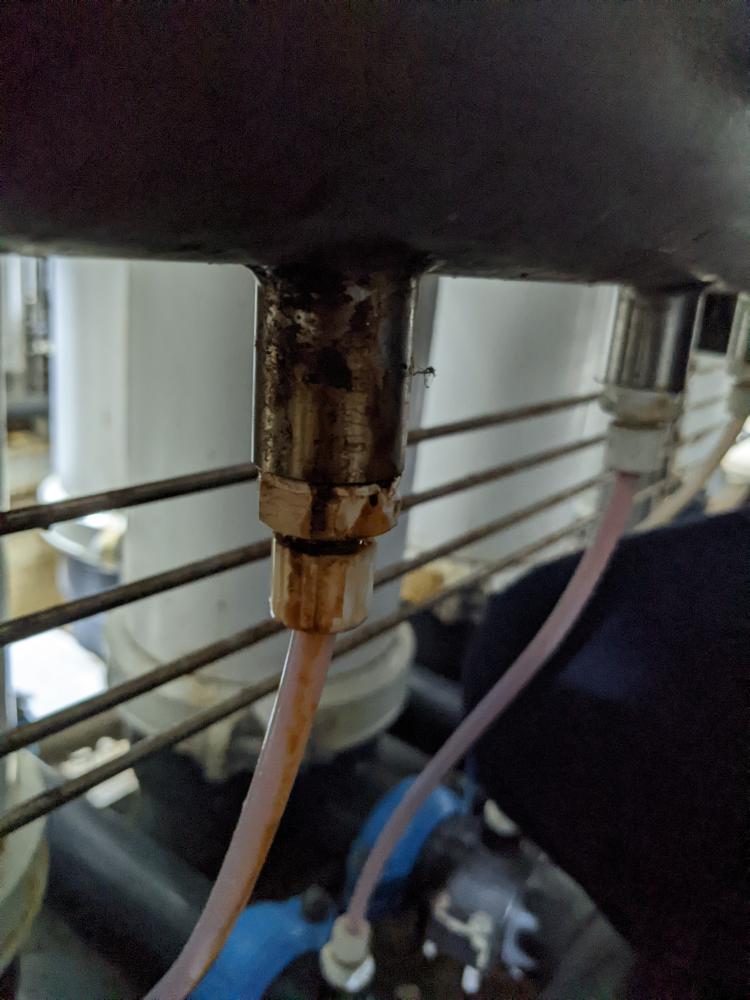How Water Heater Repair

Common Water Heater Issues
Water heaters, like all appliances, face a range of common issues that might hinder their performance. These issues often include water temperature inconsistency, which can be incredibly frustrating when all you want is a warm shower after a long day. A rise in utility bills can also signal inefficiency in your water heater, causing more financial strain than necessary. Diagnosing the problem accurately is the first step in how water heater repair can be approached effectively.
Leaking is another prevalent problem that demands immediate attention. Small leaks can quickly escalate into major water damage, affecting property structures and leading to costly repairs. Often, these leaks stem from faulty valves or connections, highlighting the need for routine checks. Rusty water is also a sign your water heater needs some attention, as it suggests corrosion inside the tank. This problem, if left unattended, can shorten your unit's lifespan significantly.
While strange noises coming from the tank might seem alarming, they're usually just the tank's way of "talking" to you. Sediment build-up at the bottom of the tank is a common cause of these unsettling sounds. This layer of sediment not only reduces the heater's efficiency but can also damage the tank if not addressed. Being proactive in learning how water heater repair can prevent such issues from escalating.
Do-It-Yourself Repair Tips
If you're inclined towards DIY solutions, there are several approaches you can take to tackle minor water heater issues. Before you start, remember to turn off the power supply for safety. For electric heaters, this means flipping the circuit breaker, while gas water heaters require you to turn off the gas valve. Armed with basic tools and some patience, you can handle minor fixes yourself.
Flushing the tank is a simple yet effective way to deal with sediment build-up. Regular flushing can enhance the efficiency of your water heater and prolong its lifespan. Simply attach a garden hose to the drain valve and let the water flow out until it's clear. This process helps prevent strange noises and maintains optimal performance.
Checking the water heater's thermostat settings can solve issues with inconsistent water temperatures. Sometimes, a simple adjustment is all it takes to restore the desired heat levels. Ensure the settings are appropriate; typically, 120 degrees Fahrenheit is recommended for safe and comfortable water heating.
Pressure relief valve maintenance is crucial in ensuring safety and preventing potential explosions. Testing this valve regularly ensures it functions correctly, especially in situations that cause the internal pressure to spike. If the valve doesn't release water when tested, it may be time for replacement.
When to Call a Professional
Although DIY can be rewarding, knowing when to call in the experts is essential. Complex issues like faulty wiring or significant leaks require professional attention to avoid further damage or safety hazards. Home Alliance, with its expertise, can provide comprehensive solutions to ensure your system runs smoothly. Their team brings years of experience to the table, offering peace of mind when dealing with intricate problems.
If your water heater is over ten years old and frequently requires repairs, it may be more cost-effective to replace it entirely. Professionals can offer advice on modern, energy-efficient models that could save you money in the long run. This step not only addresses your current need for how water heater repair but also paves the way for future energy savings.
Preventative Maintenance Strategies
Regular preventative maintenance can significantly reduce the need for how water heater repair. By scheduling annual inspections with professionals like Home Alliance, potential issues can be identified before they become serious. This proactive approach ensures that your water heater performs optimally throughout its service life.
Additionally, installing a water softener can minimize sediment build-up caused by hard water, further enhancing your heater's efficiency. Using insulated hot water pipes and installing a hot water tank blanket can reduce heat loss, making the system more energy-efficient. Keeping these strategies in mind can help extend the life of your water heater and save money in the long run.

Professionals Who Replace Hot Water Heaters
When you're pondering who replaces hot water heaters, the first DIY enthusiasts might often think of is a professional plumber. Plumbers are well-versed in the intricacies of water systems and are usually equipped to handle replacements efficiently. Plumbers not only replace water heaters but also ensure that connections, like water lines and gas supply, are executed with precision and safety. A plumber's expertise is invaluable, especially in avoiding potential leaks or hazards that could arise from an incorrect installation. Settling for a certified plumber might just save one from a flood of troubles down the line.
In addition to plumbers, HVAC specialists like those from Home Alliance are increasingly becoming a go-to choice for this task. These professionals bring a holistic approach, understanding the interplay between heating systems and the broader home environment. Their expertise ensures that the hot water heater is efficiently integrated into existing heating systems, optimizing energy conservation and enhancing system longevity.
Another professional who replaces hot water heaters is an electrician, particularly for electric water heaters. Although not directly involved in plumbing, they ensure that all electrical connections adhere to safety standards. They confirm that the heater receives the right voltage and assess whether additional electrical infrastructure is necessary, all while ensuring compliance with local regulations.
DIY Replacement vs. Professional Installation
Taking the DIY route for replacing hot water heaters is appealing to those with a knack for home improvement, as it promises a hands-on experience and potential cost savings. However, the complexity of modern water heaters often requires tools and skills beyond what a typical homeowner might possess. Undertaking such a project involves a series of intricate steps, from disconnecting the old unit to installing the new one, while ensuring that no step is left undone.
On the other hand, hiring experts like Home Alliance ensures peace of mind and the guarantee of work done correctly the first time. Professionals offer benefits like protecting warranties through proper installation and implementation of state-specific regulations and codes, which might be unfamiliar to a layperson. While the initial investment may be higher, the long-term savings and safety considerations often outweigh the upfront costs.
For some, the decision might hinge on the age and layout of their home. Homes with complex plumbing systems might necessitate professional intervention to prevent mishaps, whereas newer, simpler setups might make DIY feasible for the bold and experienced. One must weigh personal skills against the potential costs of errors when deciding the best course of action.
While the allure of DIY should never be discounted, enlisting professional help often ensures that all installations meet the standards of durability and efficiency expected by modern homeowners. This approach minimizes the risks associated with incorrect installations and provides a safeguard against future problems.
Exploring Unique Solutions for Water Heater Replacement
As technology advances and sustainability becomes more of a priority, more homeowners are seeking innovative pathways for who replaces hot water heaters. One such solution involves opting for tankless water heaters, which can be both energy-efficient and space-saving. Tankless systems heat water on demand, reducing energy consumption and offering endless hot water, which is ideal for larger households.
Alternatively, solar-powered water heaters are gaining traction as eco-friendly options that harness natural energy to reduce utility bills. Installation of these systems often requires specialists who understand the intricacies of integrating solar power with home heating systems.
Employing smart technology in water heaters is another avenue, with "smart" water heaters offering advanced controls and diagnostics. By partnering with professionals experienced in these technologies, homeowners can enjoy systems that adjust to usage patterns, improving both convenience and efficiency.
Ultimately, for those exploring who replaces hot water heaters, the fusion of traditional methods with cutting-edge technology presents numerous options to consider. Whether prioritizing energy savings, innovative designs, or professional reliability, there is a solution to meet every need.
The Role of Thermocouples in Water Heaters
A thermocouple is a vital component in many water heaters, acting as a safety device that ensures your system operates efficiently and safely. Essentially, it serves as the sentinel within the water heater, monitoring the pilot light and ensuring it remains lit. If the thermocouple senses the pilot flame has gone out, it automatically cuts off the gas supply to prevent any potential hazards. This feature is particularly crucial in preventing gas leaks that could lead to dangerous situations, protecting both your home and family.
In the realm of water heater maintenance, thermocouples are often overlooked, even though they play such a critical role in functionality. A malfunctioning thermocouple can lead to a water heater that won't remain lit, causing perpetual frustration for homeowners. This common issue often results in cold showers and could even necessitate emergency HVAC assistance. Regular maintenance checks and prompt replacement of a thermocouple for water heater replacement are therefore essential to ensure continued safety and comfort.
Troubleshooting Thermocouple Issues
Identifying problems with your thermocouple can save you both time and money. Symptoms of thermocouple failure often include a pilot light that will not stay lit or a water heater that fails to generate hot water. If you're handy with tools, performing a few diagnostic checks could be straightforward. For instance, ensuring the thermocouple is correctly aligned with the pilot light and checking for signs of wear or corrosion could provide insights into the underlying issue.
While a DIY approach to thermocouple for water heater replacement can seem tempting, sometimes it's best to consult professionals. Organizations like Home Alliance offer expert services that ensure accurate assessments and professional installations, which might be worth considering to avoid further complications. Attempting to replace a thermocouple without adequate skills or experience could result in improper installation and ineffective operation, potentially leading to more significant problems down the line.
For the tech-savvy homeowner, opting for a higher-quality thermocouple with features like enhanced durability or corrosion resistance can provide longer-term solutions. This consideration can effectively minimize the need for frequent replacements. In situations where the issue persists despite replacement, seeking professional help is advised, as it may indicate a more complex problem with your water heater.
Ensuring a Successful Replacement
Replacing a thermocouple for water heater replacement may sound daunting, but with a methodical approach, success is within reach. Begin by shutting off the gas valve to ensure safety, then proceed to remove the faulty thermocouple. Always ensure that the new thermocouple is the correct fit for your water heater model to prevent compatibility issues, which could affect performance.
After securing the new thermocouple, align it precisely with the pilot light flame. A misaligned thermocouple can lead to erratic readings and false alarm shutdowns. Once installation is complete, test the water heater thoroughly to verify that the pilot light stays lit and the system operates efficiently.
Enlisting the help of professionals like Home Alliance for thermocouple for water heater replacement could be the wisest decision for ensuring a hassle-free experience. Their expertise and commitment to quality service guarantee a job well done, allowing you to focus on more important tasks while they handle the technicalities. With their assistance, concerns about potential gas leaks or unexpected cold showers can become a thing of the past, leaving your home safe and your water consistently warm.

Can a water heater be repaired?
Absolutely, a water heater can often be repaired, depending on the severity of the issue. Common problems like inconsistent water temperatures, strange noises, or leaks can usually be addressed with the right tools and some basic knowledge. For instance, sediment buildup often requires a simple tank flush, while a faulty thermostat might just need readjustment. As a seasoned professional in the HVAC industry, we at Home Alliance understand how frustrating it can be when your water heater isn't working correctly. If you're handy and comfortable with basic tools, you might tackle minor repairs yourself. However, for more complex issues or if the water heater is over ten years old, consulting a professional might be more prudent. This ensures safety and efficiency while potentially saving on future repair costs. What are your biggest concerns when considering DIY repairs?
What is the most common cause of water heater failure?
The most frequent cause of water heater failure is sediment buildup. This occurs when minerals, such as calcium and magnesium, settle at the bottom of the tank, leading to reduced efficiency and possible damage. I recall a time when a customer's water heater was making banging noises due to excessive sediment. We performed a simple flush, and their system was back to normal. Regular maintenance, like annual tank flushing, can significantly mitigate this issue. As we often say at Home Alliance, an ounce of prevention is worth a pound of cure. Are you taking preventative steps to extend your water heater's lifespan?
Are water heaters easy to fix?
Water heaters can be easy to fix, depending on the problem. Simple issues like adjusting the thermostat or flushing out sediment may only require basic skills and tools. However, more complex repairs, such as fixing a water heater that won't stay lit or diagnosing electrical issues, might pose a challenge for the average homeowner. At Home Alliance, we often advise customers to assess their comfort level with home repairs and consider the risks involved. If you're ever unsure, reaching out to a professional can help avoid costly mistakes. Have you ever attempted a repair and found it more challenging than expected?
What are common causes of a water heater not working?
Several factors can lead to a water heater malfunctioning. The most common include a tripped circuit breaker, a faulty thermostat, or sediment buildup. Additionally, a malfunctioning thermocouple, especially in gas water heaters, might prevent the pilot from staying lit. An experience that stands out involved a homeowner who called us with no hot water issue, which turned out to be a simple thermocouple replacement. At Home Alliance, we emphasize the importance of regular maintenance checks to catch such issues early. Have you noticed any unusual signs with your water heater recently?
Who replaces hot water heaters?
Replacing hot water heaters is typically done by professional plumbers, HVAC specialists, or electricians, depending on the unit type. For instance, licensed plumbers are ideal for handling the water and gas connections, ensuring safety and compliance with local codes. HVAC specialists, like our team at Home Alliance, bring expertise in understanding the broader heating system, which can be beneficial for seamless integration. Electricians, meanwhile, are essential for ensuring all electrical connections adhere to safety standards. Choosing the right professional depends on the specific needs of your installation. Have you considered who might be best suited to replace your system?
What is a thermocouple in water heaters, and when should it be replaced?
A thermocouple is a vital safety component in gas water heaters, detecting whether the pilot light is lit and shutting off the gas if it isn't. It's an unsung hero in many ways, crucial for preventing gas leaks. If the pilot light frequently goes out or won't stay lit, it might be time to inspect the thermocouple. I recall a customer who had recurring cold showers due to a faulty thermocouple, which we replaced, restoring their hot water supply. Regular checks can prevent unexpected issues. Have you experienced any issues with your pilot light recently?
Resources
- U.S. Department of Energy - The official website of the U.S. Department of Energy provides valuable information on energy efficiency, including tips for maintaining water heaters.
- Environmental Protection Agency (EPA) - The EPA's website offers resources on water conservation and how to choose environmentally friendly water heating options.
- Consumer Reports - Consumer Reports provides reviews and recommendations on a variety of appliances, including water heaters, to help consumers make informed purchasing decisions.
- Office of Energy Efficiency & Renewable Energy - This office provides resources on energy-efficient technologies, including water heaters, to promote sustainability and lower utility costs.
- Building Technologies Office - The Building Technologies Office focuses on improving the efficiency of residential and commercial buildings, including information on water heater technology.

